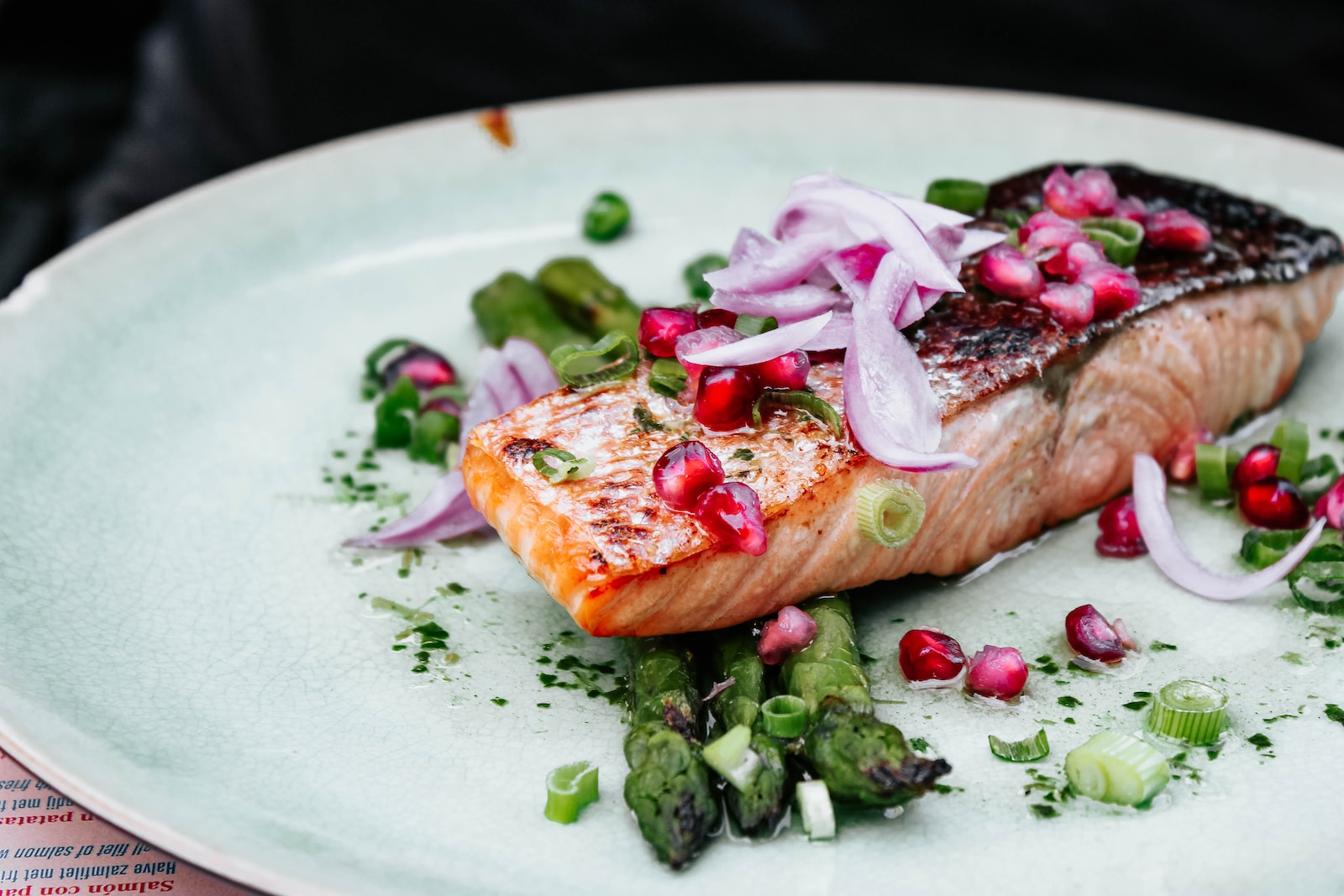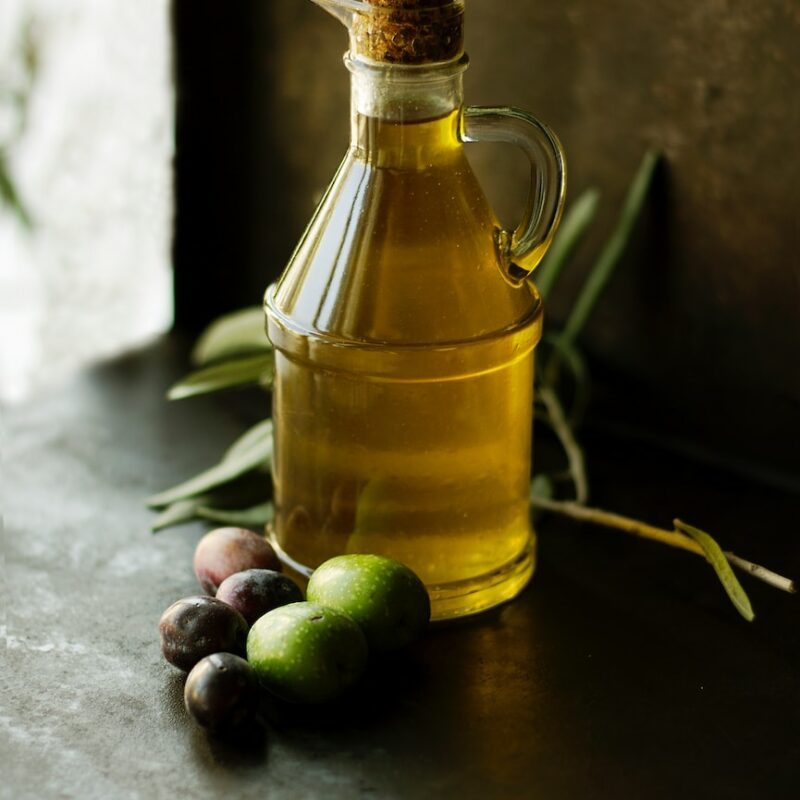When it comes to preventing heart disease through diet, we’ve come a long way from outdated notions about avoiding cholesterol foods like eggs or the faulty premise that super low-fat diets are best. The current science shows that an overall healthy diet with plenty of super foods offers optimal protection for your cardiovascular system. This eating plan not only promotes longevity, but it happens to include many incredibly tasty foods.
These mouthwatering foods can boost heart health and slash your personal risk of developing heart disease. While no one food is a silver bullet, regularly incorporating these dietary all-stars provides compounding protective effects that could ultimately help save your heart.
Here’s a list of 25 heart healthy foods that deserve a spot in your weekly meal plan!
A Rainbow of Heart-Healthy Fruits And Vegetables
Filling your plate with a variety of brightly-colored fruits and vegetables is hands down one of the most powerful ways to defend your ticker against disease. Beyond the well-established blood pressure and cholesterol benefits of a produce-centric diet, compounds called phytochemicals give many plants their vivid hues and provide antioxidant and anti-inflammatory effects.
When shopping for fresh produce, think about choosing a palette of different colors to maximize your phytochemical diversity. From deep purples and reds to sunny yellows, vibrant oranges and emerald greens, produce offers visually stunning nutrition. Not to mention, colors often signify different health benefits – so load up on the full spectrum for comprehensive heart defense.
Don’t let dreary winter months deter you from produce either! While fresh options dwindle, frozen fruits and veggies retain their wholesome attributes. Canned varieties work too but check labels and choose low-sodium options packed in water or natural juices whenever possible.
Now, let’s check out a few all-star fruits and veggies with science-backed abilities to boost cardiovascular wellness. We’ll start with a famously healthy cruciferous green.
Kale Protects Blood Vessels
Known as the “queen of greens,” kale deserves its nutritional crown for exceptional antioxidant content paired with hearty fiber and potassium. As a low-calorie source of essential vitamins A, C and K, just one cup of chopped raw kale clocks in at only 8 calories!
Beyond conventional nutrition stats, kale flaunts a carotenoid phytochemical called lutein which research links to improved blood vessel function. A 2020 study published in the British Journal of Nutrition found higher lutein levels related to significantly lower arterial stiffness. Considering arterial stiffness raises risk for strokes, heart attacks and other cardiovascular catastrophes, eating more lutein-rich kale clearly deserves your consideration.
Whip up massaged kale salads, blend leaves into fruit smoothies or bake crispy kale chips to amplify cardiovascular protection through this virtuous veggie. Just avoid overcooking it to preserve its awesome nutrient payload.
Sweet Potatoes Lower Blood Pressure
With their brilliant orange flesh and subtle natural sweetness, heart-shaped sweet potatoes seem fittingly created to safeguard human health. Rich in antioxidants like carotenoids and vitamin C, these spuds emerged in research as superior guardians against hypertension versus plain white potatoes.
A 2006 study in the Journal of Hypertension discovered carotenoid-concentrated orange-fleshed sweet potato extract effectively reduced systolic and diastolic blood pressure in rodent subjects. Researchers suggested antioxidant and anti-inflammatory actions of the phytochemical-dense extract relaxed blood vessels and facilitated healthy circulation. So, reach for sweet over white potatoes to potentially reduce blood pressure while enjoying their highly palatable flavor and silky texture after baking or roasting.
Blueberries Improve Artery Function
Bite into a plump, juicy blueberry and let its deep purple juice fill your mouth with sweet tartness. Known as an antioxidant powerhouse, blueberries supply blood pressure-lowering effects along with unique benefits for heart health.
A 2021 double-blind, placebo-controlled clinical trial published in The American Journal of Clinical Nutrition demonstrated daily blueberry consumption preserved artery function in 120 participants with at least two risk factors for cardiovascular disease. Using ultrasound scans, researchers tracked blood vessel responsiveness over six months and found it declined in the placebo group but remained stable amongst blueberry munchers. The study suggests blueberries confer protective vascular effects in at-risk individuals prone to stiffening arteries.
Beyond fresh or frozen berries, blueberry powder makes an easy way to reap benefits. Stir it into yogurt, oats or smoothies for brilliant color and added heart defense through bioactive compounds called anthocyanins that grant the berries their rich hue.
Strawberries Suppress Inflammation
Juicy red strawberries supply a megadose of anti-inflammatory phenolic acids that counter arterial inflammation driving atherosclerosis.
According to 2022 research in Food Science and Human Wellness journal, subjects drinking strawberry juice for 6 weeks saw significant declines in serum inflammatory markers like interleukin-6 and C-reactive protein compared to placebo. Considering chronic inflammation notoriously damages arterial walls to spur plaque buildup, strawberries rightfully deserve deployment for their protective potency.
Blend fresh or frozen berries into smoothies, layer into yogurt parfaits or craft sweet-tart sauces over desserts to harness their wholesome benefits.
Raspberries Improve Blood Pressure
Beyond their intensely sweet-tart flavor popping like audible flavor fireworks in your mouth, raspberries provide natural blood pressure regulation through bioactive peptides that relax blood vessels.
In a 2021 clinical trial in Food & Function journal, participants drinking raspberry juice for 8 weeks experienced substantial declines in systolic and diastolic blood pressure averaging 6 and 4 mmHg respectively. Researchers suggested vasodilating peptides in raspberries underpinned the reductions.
Fresh or frozen raspberries obviously work wonders blended into smoothies, stirred into oatmeal or simply enjoyed by the handful! For radical convenience, raspberry juice offers an easy way to dose up on natural blood pressure management.
Blackberries Guard Blood Vessels
Finally, inky purple blackberries tout unique abilities to preserve blood vessel performance by ratcheting up production of nitric oxide, a vasoprotective signaling molecule that relaxes arteries and ensures adequate blood flow.
A 2020 study in Antioxidants journal showed an anthocyanin-standardized blackberry extract triggered a nearly 50 percent increase in nitric oxide levels in human endothelial cells. Researchers suggested blackberries confer protective effects against endothelial dysfunction, thereby defending delicate arteries against plaque-provoking damage cascading into strokes and heart attacks.
Beyond antioxidant richness, blackberries also supply prebiotic fiber that nourishes gut microbiome communities to support whole-body wellness through far-reaching immune and metabolic crosstalk pathways.
So next time blackberry brambles strike your sensory imagination with dreams of rich, jammy flavor, remember their deep color signifies equally profound benefits for cardiovascular health. Allow their harvest bounty to infuse your diet with anthocyanin antioxidants through sweet cobblers, whole grain muffins or yogurt smoothies that promise to preserve your precious ticker for years to come.
Heart-Loving Proteins and Fats
While fruits and veggies dominate any well-balanced diet focused on longevity, heart health necessitates adequate protein and healthy fats too. Let’s explore superb options for incorporating satiating, versatile proteins and inflammation-taming fats from predominantly plant-based sources.
As a general guideline amid confusing dietary rhetoric, most adults need 0.36 grams of protein per pound of body weight daily while limiting saturated fats to less than 10 percent of total calories. For essential fatty acids with clinically-proven heart perks, focus on increasing monounsaturated and omega-3 polyunsaturated fats while limiting pro-inflammatory omega-6s through mindful choices.
Salmon Safeguards Cardiac Rhythms

Buttery pink salmon earns its culinary fame alongside awesome nutritional attributes that secure human health, especially for the heart. Rich in inflammation-quelling omega-3 fats called EPA and DHA, research confirms salmon’s starring role in guarding against erratic heartbeat patterns called arrhythmias which underlie many cardiac deaths.
According to a 2019 meta-analysis in Clinical Nutrition, higher blood levels of EPA and DHA fatty acids associate significantly with a reduced risk for fatal cardiac events, especially sudden cardiac death usually caused by arrhythmias. Researchers concluded omega-3s likely confer protective effects by stabilizing heart cell membranes.
So, consuming salmon and other fatty fish like mackerel, sardines or herring not only tantalizes taste buds but provides essential fats that could save your life by smoothing electrical signaling deficits in heart tissues. Grill, roast, poach or pan sear salmon filets for easy, nutritious meals that support longevity through improved electrical function deep within your ticker.
Walnuts Regulate Blood Pressure
Known for their delicate crunch when raw yet irresistibly toasty flavor once toasted, walnuts deliver stellar nutrition along with versatile flavor. Packed with inflammation-taming ALA omega-3s, magnesium, fiber and polyphenols, walnuts unsurprisingly shine as heart helpers.
Specifically regarding blood pressure regulation, a meta-analysis of 26 controlled trials discovered walnut-enriched diets substantially decreased systolic blood pressure—even in absence of weight loss. Considering walnuts uniquely contain cardioprotective molecule compounds found in no other nuts, researchers suggested vasodilating and anti-inflammatory actions underpinned the reductions.
Incorporate crushed walnuts into oatmeal cookies, sprinkle onto salads or simply enjoy their subtly sweet flavor straight for convenient heart benefits. Those seeking plant-based proteins can also blend soaked raw walnuts into dairy or non-dairy milks for a nutritious beverage creamy enough to impress any latte lover.
Walnut Oil Regulates Heart Rhythms
We’ve extolled walnuts’ virtues based on omega-3 content, however walnut oil concentrates their benefits through dense ALA fat comprising over 60% of its makeup. Thereby it rivals fish oils’ anti-arrhythmic effects despite originating from plants.
According to research in Nutrition journal, regular walnut oil intake effectively suppresses irregular heartbeat patterns called ectopy which raise risk for sudden cardiac death from rhythm disorders. Thanks to membrane-stabilizing omega-3s, it beneficially regulates electrical signaling deficits plaguing aging hearts.
Walnut oil lacks versatility for cooking at high heat but truly shines for elevating flavors when used cold. Whisk into bold vinaigrettes, blend into smoothies or simply use for drizzling breads or finishing dishes with its incredibly rich texture and nutty depth.
Almonds Lower LDL Cholesterol
We’ve already covered walnuts, but their nutty cousin the almond also affords cardio-protective powers through plant sterols that block cholesterol absorption to achieve significant LDL lowering equal to early-generation statin drugs.
According to a 2018 review in Nutrients journal aggregating results from over 50 controlled diet trials, almonds reliably reduce LDL levels around 5% on average. Researchers concluded just 30 grams daily (about 1 ounce) suffices to pay great heart health dividends over time by improving blood lipid profiles.
Beyond cholesterol control, almonds also encourage weight management and supply antioxidant vitamin E protecting delicate lipids from oxidation enabling plaque formation. So, grab a handful of almonds over potato chips or sweets when mid-day hunger strikes!
Avocado Oil Fights Inflammation
Though avocado fruit garners adoration for its creamy texture and multidimensional flavor, its oil similarly deserves spotlight for heart benefits through oleic acid shown to resolve vascular inflammation.
In fact, a 2020 study in Food & Function journal discovered avocado oil decreased inflammatory interleukin proteins and other markers by nearly 70% in human aortic cells. Researchers concluded its high antioxidant content paired with inflammation-resolving oleic acid underpinned the dramatic protective effects.
Drizzle avocado oil onto salads or cooked veggies in place of conventional vegetable oils to dampen dietary inflammation through excellent fatty acid balance while enjoying its mild grassy flavor.
Black Beans Lower “Bad” Cholesterol
Reliably budget-friendly and hugely versatile, black beans make regular appearances across an array of global cuisines—and for good nutritional reason! Packed with satiating plant-based protein and fiber, black beans boast extensive research validating their cholesterol-lowering prowess important for heart health.
Multiple randomized trials confirm including black beans into diets reduces LDL “bad” cholesterol while leaving HDL “good” cholesterol unchanged. In one study, consuming just 3⁄4 cup black beans daily dropped LDL cholesterol by 8 percent in less than two months. Researchers proposed bean fiber binds to cholesterol in digestion, allowing excretion versus absorption into blood vessels where LDL deposits accelerate atherosclerosis.
Beyond cholesterol control, black beans hit high marks for managing blood sugar and supplying anti-inflammatory, antioxidant phenolic compounds linked to longevity. Whip up Southwest caviar dip, quick weeknight tacos or homemade veggie burgers using black beans to slash cardiovascular risk factors through their phenomenal nutritional package.
Extra Virgin Olive Oil Protects Arteries

A dietary staple of traditional Mediterranean eating patterns associated with exceptional heart health and longevity, extra virgin olive oil deserves the spotlight for its ability to quite literally smooth blood vessel walls through unique anti-inflammatory phenolic compounds.
According to research published in 2020 in Molecular Nutrition & Food Research, regular extra virgin olive oil consumption modifies gene expression to suppress arterial wall inflammation amongst individuals with high cardiovascular risk profiles. Considering chronic inflammation drives progressive arterial damage, olive oil deserves its venerated status for soothing delicate vascular linings.
Drizzle extra virgin olive oil over salads or cooked vegetables, use it to sear succulent meats or seafood or simply dip crusty whole grain bread into it for an instant flavor upgrade that also defends your precious heart. With antioxidant potency directly correlating to freshness, purchase smaller bottles, store them away from heat and light and aim to use within 3 months for maximum benefit.
Whole Grains Guard Against Strokes
Beyond imparting rich, nutty, comforting flavors across our dining repertoire, whole and ancient grains uniquely impact human physiology to provide reliable protection against strokes—a leading cause of disability and cardiac death after heart attacks.
Epidemiological studies confirm diets higher in whole grains strongly associate with reduced first-time strokes, especially more devastating hemorrhagic strokes causing blood vessel ruptures in the brain. For instance, a meta-analysis reported just one daily serving higher whole grain intake linked to a 7 percent drop in stroke risk–amounting to a 20 percent dip for those consuming 3 to 5 servings daily.
These statistics highlight why loading up on fiber-rich whole grain goodness matters for defusing stroke risk. Let’s explore a couple ancient grain superstars worth including for amplified protection.
Farro Lowers Blood Pressure
Nutritionally robust farro stands out even amongst health-haloed whole grains for unique compounds which relax blood vessels and combat hypertension–a leading contributor to strokes.
In particular, one standout molecule called cyanidin-3-glucoside provides potent nutritional medicine to soothe vascular function based on research in Hypertension journal. Study authors concluded the antioxidant compound lowers blood pressure likely by facilitating nitric oxide signaling vital for flexible arteries.
Enjoy nutty farro folded into grain bowls and salads or as a savory breakfast porridge topped with veggies and eggs. Its toothsome chew and hints of cinnamon make this ancient wheat relative a sound choice for defending your precious brain against strokes by regulating blood flow and oxygen delivery.
Freekeh Contains Blood-Thinning Lignans
Hailing from the Middle East, smoked green freekeh packs a one-two nutritional punch for stroke protection through substantial fiber paired and unique phytochemicals called lignans shown to prevent blood clots propagating ischemic strokes.
As sticky platelet accumulation forms troublesome clots interrupting blood flow inside narrowed vessels already inflamed from plaque buildup, freekeh’s lignan compounds help maintain blood fluidity and prevent clumping according to research in Molecular Nutrition & Food Research journal. Thereby, incorporating freekeh allows you to proactively thwart deadly clots before they spawn into massive blockages.
Featuring a nuanced smoky flavor from traditional hand-harvesting methods, freekeh brings deep savory notes to grain bowls and salads or even risotto-style dishes. Its firm yet tender texture also suits pilafs or risottos seamlessly while delivering extraordinary nutritional protection against debilitating strokes.
Amaranth Fights Inflammation
Originally cultivated by Aztec civilization before Spanish conquerors nearly erased it, amaranth packs inflammation-suppressing abilities on par with turmeric according to 2017 research in Food Chemistry journal.
Thanks to a potent peptide compound called lunasin inhibiting inflammatory pathways, amaranth shows promise for addressing chronic inflammation driving cardiovascular disease. Its pleasantly nutty flavor and chewy-crisp texture work nicely in place of white rice or even as the basis for gluten-free flour blends.
Millet Lowers Blood Pressure
Accessibly priced yet criminally underappreciated millet affords humble whole grain goodness destining it for future superfood stardom based on blood pressure benefits confirmed in Nutrition journal.
In a controlled feeding trial substituting millet for rice, participants experienced average systolic blood pressure reductions nearing 10 mmHg after just six weeks. Attributed to millet’s high magnesium content relaxing smooth muscle cells in arterial walls, these clinically-significant declines can help prevent heart disease.
Beyond magnesium, millet also supplies more inflammation-fighting polyphenols than quinoa plus beneficial amino acid compounds which mitigate artery-harming oxidative stress. This versatile grain suits both savory and sweet dishes like pilafs, risottos, porridges or light fluffy muffins.
Sorghum Battles Oxidation
Rounding out our trio of uncommonly nutritious grains bolstering heart health through unique mechanisms, sorghum features rare plant nutrients called 3-Deoxyanthocyanidins scavenging tissue-damaging free radicals.
Hailed as having more antioxidant power than blueberries as well as anti-cancer and cholesterol-lowering effects, sorghum anthocyanins combat oxidative threats Stress weakening the structural integrity of blood vessels over decades. Thereby, it guards against plaque ruptures and clots suddenly occluding arteries to trigger heart attacks and strokes.
Beyond exceptional nutrition, gluten-free sorghum also offers a neutral flavor profile and chewy bite making it suitable for both savory and sweet recipes from world cuisines. Expand your whole grain repertoire by enjoying this versatile cereal grass.
Spicing Up Heart Health
Beyond their obvious role in transforming boring dishes into vibrant culinary sensations, certain spices and herbs uniquely impact human physiology in ways that defend the heart against disease.
Potent plant compounds called polyphenols give many spices their characteristic colors and flavors. But additionally, these phytochemicals trigger beneficial gene expression, enzyme activities and metabolic processes conferring protection across nearly every organ system.
Let’s uncover science supporting three antioxidant-rich spices as honorable mentions for their anti-inflammatory and anti-atherosclerotic powers in the crusade against heart disease.
Turmeric: Curcumin Protects Arteries
The vibrant yellow pigment curcumin underlies turmeric’s culinary appeal and drives its ascendance as an anti-inflammatory panacea based on abilities to resolve vascular inflammation initiating atherosclerosis.
According to an Atherosclerosis journal study, curcumin slashes inflammatory cytokine production while boosting expression of antioxidant proteins in endothelial cells comprising artery walls. Thereby it beneficially prevents “endothelial activation” spurring plaque formation over decades.
Blend turmeric into dressings and marinades, stir into egg scrambles or enhance its absorption considerably by pairing with black pepper and healthy fats like olive oil.
Cinnamon Lowers Blood Pressure
One whiff of comforting cinnamon instantly conjures memories of beloved baked goods from childhood, but ancient traditional medicine systems revered it as a potent healing spice. Modern research now confirms cinnamon offers science-backed benefits for regulating blood pressure.
According to a 2013 clinical trial in Journal of the Academy of Nutrition and Dietetics, participants given cinnamon capsules over 12 weeks experienced average systolic pressure reductions nearing 5mmHg compared to placebo group. Researchers suggested potent polyphenols boost nitric oxide generation inducing vessel relaxation.
Enjoy comforting cinnamon flavor by sprinkling on oatmeal, toasted nuts or even roasted sweet potato fries straight from the oven! Its diverse flavors and polyphenols promise therapeutic effects for your precious heart.
Basil Preserves Artery Function
Sweet leafy basil belongs inartery function mastery based on human trials in Journal of Clinical Lipidology demonstrating preserved blood vessel performance and improved inflammatory markers after basil consumption in patients with uncontrolled diabetes.
Considering such patients suffer markedly higher cardiovascular risk from advanced glycation end products damaging endothelial tissues, basil’s antioxidant polyphenols counteract these threats to maintain resilient arteries despite metabolic dysfunction. Harness basil’s benefits by enjoying fresh leaves in Mediterranean dishes, pesto sauces, herbed olive oils or creative cocktails!
Ginger Lowers Blood Pressure
Pungent ginger root contains anti-inflammatory compounds called gingerols that suppress vascular inflammation leading to atherosclerosis. But beyond soothing delicate arteries, ginger also provides natural blood pressure reduction.
According to a 2015 meta-analysis in Complementary Therapies in Medicine, various ginger supplements reliably lower systolic and diastolic pressure in hypertensive patients. Attributed to ginger’s inhibition of vasoconstricting enzymes, enjoy its zesty flavor to guard against hypertension.
Rosemary Boosts Circulation
Fragrant rosemary isn’t just a popular seasoning for roast meats and potatoes. Rich in antioxidant carnosic acid, this visually stunning herb improves blood flow by enhancing nitric oxide signaling vital for healthy arteries.
Per a 2016 controlled trial in European Journal of Nutrition, participants drinking rosemary tea experienced substantial improvements in endothelial function promoting circulation to peripheral tissues. Sip rosemary tea or add leaves to meat rubs for flavor and cardiovascular benefits!
Saffron Improves Heart Function
The world’s priciest spice by weight thanks to extensive hand-harvesting needs, vivid crimson saffron contains carotenoids called crocetin and crocins that optimize cardiac function based on clinical research.
In multiple human trials saffron reliably improves left ventricular ejection fraction in patients with coronary artery disease compared to placebo according to a Pharmacological Research journal analysis. Thereby it enhances heart efficiency and oxygen delivery despite underlying disease.
Cloves Reduce Platelet Stickiness
Famously featuring in warming Winter holiday recipes, antioxidant-rich cloves combat unfair blame for spike heart attacks by actually reducing platelet aggregation forming troublesome clots in narrowed vessels.
A 2007 Platelets journal study discovered clove extracts strongly inhibit platelet clumping better than aspirin by blocking inflammatory signals driving their accumulation. Thereby cloves naturally promote freer flowing blood less prone to deadly flow-blocking coagulation.
Cilantro Binds Dietary Cholesterol
Though famously polarizing regarding its soapy flavor, cilantro deserves consider for heart health by capturing dietary cholesterol using its fiber-like compounds preventing absorption into circulation.
Research in Journal of Food Science suggests cilantro-derived phytosterols compete for absorption with cholesterol in the gut, allowing its excretion from the body and thereby lowering blood levels. A simple cholentastic way to lower cardiac risk markers!
Heart Healthy Foods That Can Help Save Your Heart

So there you have it — a big list of heart healthy foods that can help lower your risk of heart disease. While no “silver bullet” food exists to out-eat poor lifestyle habits, focusing your diet on these wholesome eats pays compound protective dividends in the long run.
When it comes to credible cardiac nutrition advice: consider the source, question extreme viewpoints and remember moderation remains key for overall wellbeing. Through a balanced eating approach focused on plants, high-quality proteins and healthy fats, may you gradually shift your physiology towards enhanced cardiovascular resilience over time.
25 Heart Healthy Foods That Can Help Prevent Heart Disease ... #Healthy #Health #Heart #Diets #CardiacNutrition #HealthyFats Share on X65 Funny Wine Jokes, One Liners, And Puns
Do you love wine? Do you love jokes? If so, you’re in for a treat! Here are some funny wine jokes and puns to enjoy with your next glass of favorite wine. Cheers!
I’m a dog owner that loves poetry, vampires, mountain biking, and cosplay. I’m open to ideas and still trying to figure my SFO life out one blog post at a time. LF ISO SWF GSOH SI DDF.























 ‘Bad Stench’ Leads to Discovery of Caddyshack Actress Cindy Morgan’s Body
‘Bad Stench’ Leads to Discovery of Caddyshack Actress Cindy Morgan’s Body
Leave a Reply